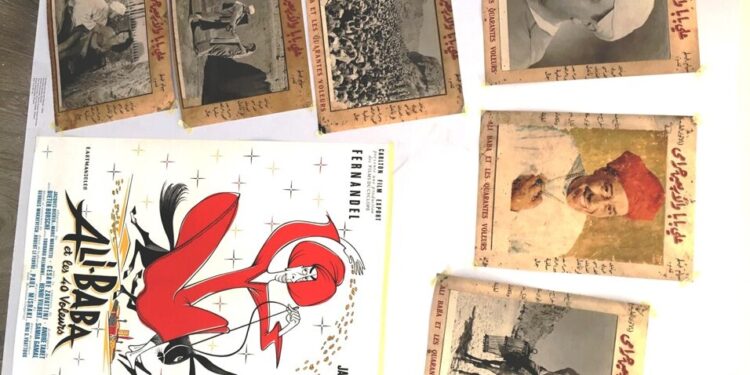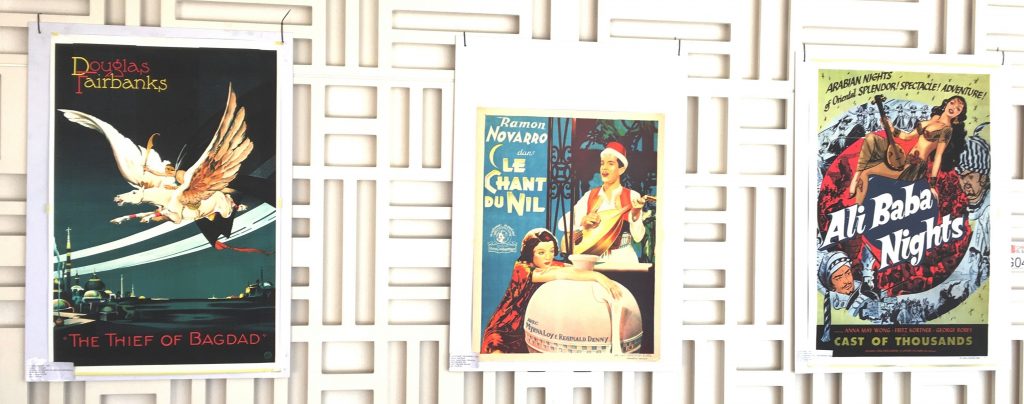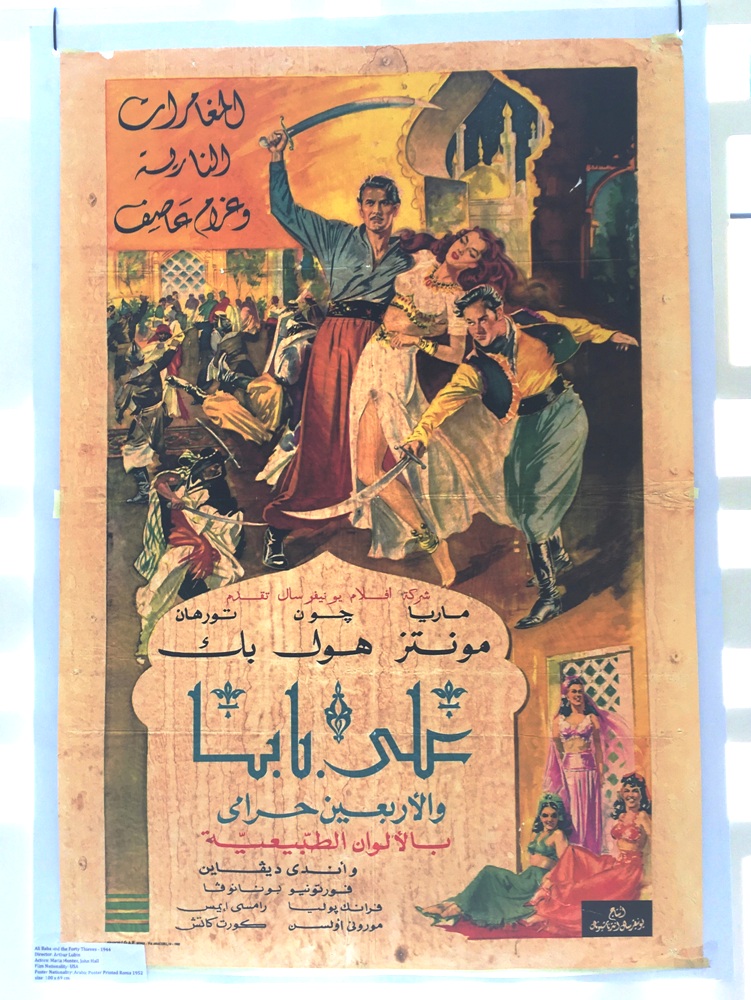Arabs in the imagination of foreigners is an exhibition of fifty old posters from the golden age of world cinema which was organized on the sidelines of the El Gouna Film Festival (Egypt).
These posters are a testimony to fantasy and tales of Arab history and culture, as imagined by Westerners, from the birth of cinema until the 1950s of the past.
3 old posters

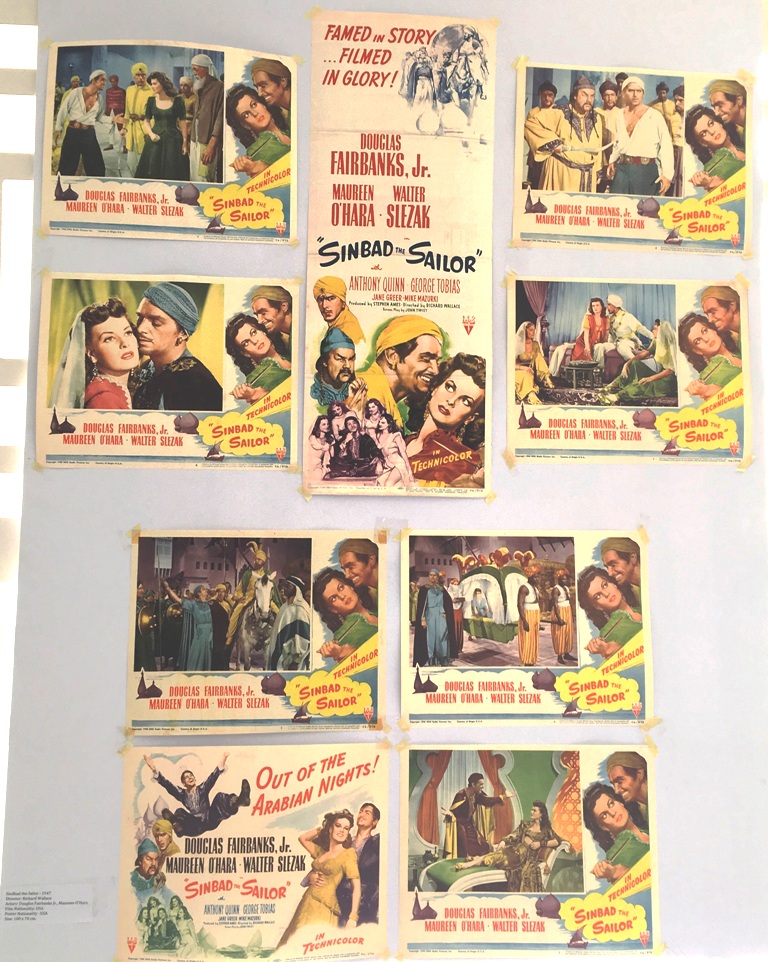
At the time, the majority of Westerners had an exotic vision of the East, a place of a picturesque civilization, living in a fabulous atmosphere populated by geniuses, sultans, princes, adventurers … living in palaces or under tents, moving on the back of camels…. But although traditional, not very urbanized, very little educated, these oriental populations were described as courageous and proud, without fear….
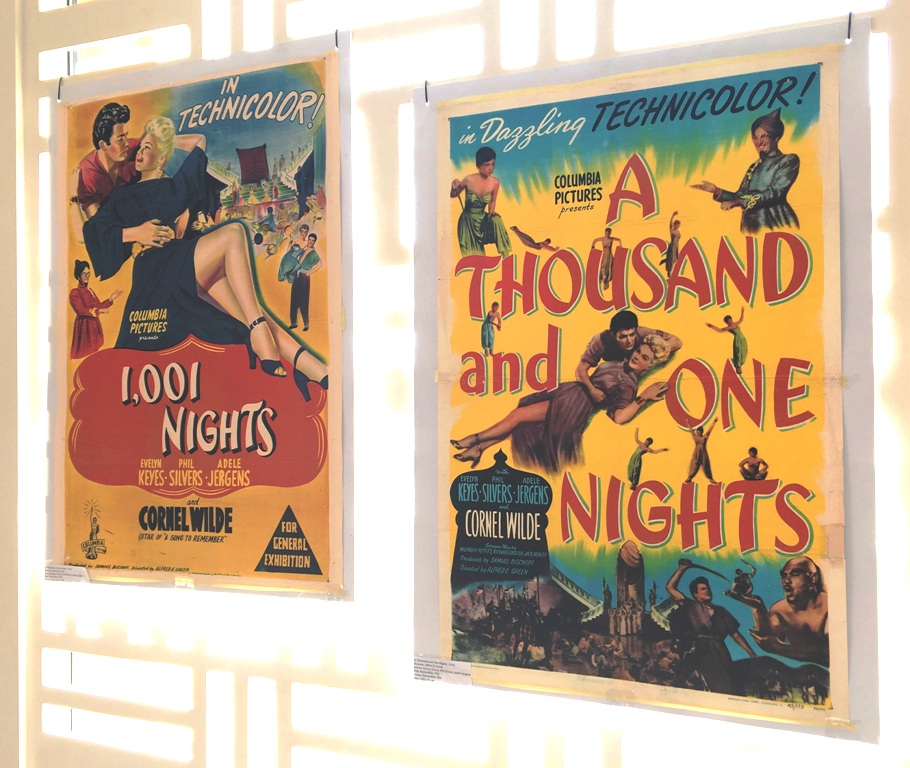
Aladin and the wonderful (magic) lamp
Some posters remind us of the films and characters in our childhood. This is how we find Ali Baba and his forty thieves,, Aladin and his magic lamp, Shehrazade and the 1001 nights, the thief of Baghdadembodied by Fernandel, Rudolph Valentino, Douglas Fairbanks or Maureen O’Hara.
“Ali Baba and the 40 thieves” (1944), the film is American, but the poster is Arab and was printed in Rome in 1952.
Players in shimmering colors, some hand -drawn. What is certain is that our current posters are nothing like these old posters that we want to take with you by leaving!
Nice exhibition and pretty memories.
The question to be asked is: has the gaze on the Orient changed since?
That’s sure. Nowadays, unfortunately the image of Arabic that emerges from Western cinema is either that of the emigrant and its problems, or that of the terrorist. Especially that of the terrorist. It’s a shame.
But on the other hand, if Western filmmakers often reserve the roles of terrorists, Spectators and various festivals have a definite craze for Arab cinema. Precisely because Arabic cinema begins to move away from stereotypes and folklore and deals with more and more universal subjects, while remaining in local specificities.
To encourage this craze, it is necessary today work more and more on the distribution of Arab films And send them to foreign spectators.
Neïla Driss
Read on the same subject:


